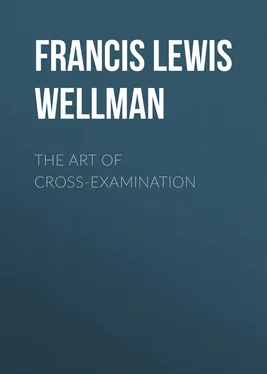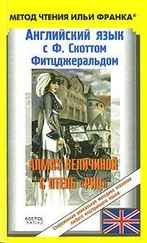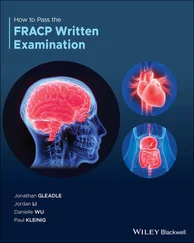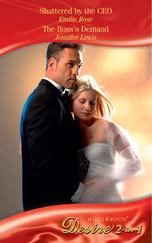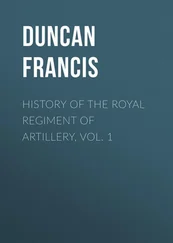Francis Lewis Wellman - The Art of Cross-Examination
Здесь есть возможность читать онлайн «Francis Lewis Wellman - The Art of Cross-Examination» — ознакомительный отрывок электронной книги совершенно бесплатно, а после прочтения отрывка купить полную версию. В некоторых случаях можно слушать аудио, скачать через торрент в формате fb2 и присутствует краткое содержание. Жанр: foreign_edu, Юриспруденция, на английском языке. Описание произведения, (предисловие) а так же отзывы посетителей доступны на портале библиотеки ЛибКат.
- Название:The Art of Cross-Examination
- Автор:
- Жанр:
- Год:неизвестен
- ISBN:нет данных
- Рейтинг книги:3 / 5. Голосов: 1
-
Избранное:Добавить в избранное
- Отзывы:
-
Ваша оценка:
- 60
- 1
- 2
- 3
- 4
- 5
The Art of Cross-Examination: краткое содержание, описание и аннотация
Предлагаем к чтению аннотацию, описание, краткое содержание или предисловие (зависит от того, что написал сам автор книги «The Art of Cross-Examination»). Если вы не нашли необходимую информацию о книге — напишите в комментариях, мы постараемся отыскать её.
The Art of Cross-Examination — читать онлайн ознакомительный отрывок
Ниже представлен текст книги, разбитый по страницам. Система сохранения места последней прочитанной страницы, позволяет с удобством читать онлайн бесплатно книгу «The Art of Cross-Examination», без необходимости каждый раз заново искать на чём Вы остановились. Поставьте закладку, и сможете в любой момент перейти на страницу, на которой закончили чтение.
Интервал:
Закладка:
An anecdote apropos of this point is told of Rufus Choate. "A witness for his antagonist let fall, with no particular emphasis, a statement of a most important fact from which he saw that inferences greatly damaging to his client's case might be drawn if skilfully used. He suffered the witness to go through his statement and then, as if he saw in it something of great value to himself, requested him to repeat it carefully that he might take it down correctly. He as carefully avoided cross-examining the witness, and in his argument made not the least allusion to his testimony. When the opposing counsel, in his close, came to that part of his case in his argument, he was so impressed with the idea that Mr. Choate had discovered that there was something in that testimony which made in his favor, although he could not see how, that he contented himself with merely remarking that though Mr. Choate had seemed to think that the testimony bore in favor of his client, it seemed to him that it went to sustain the opposite side, and then went on with the other parts of his case." 4 4 "Memories of Rufus Choate," Neilson.
It is the love of combat which every man possesses that fastens the attention of the jury upon the progress of the trial. The counsel who has a pleasant personality; who speaks with apparent frankness; who appears to be an earnest searcher after truth; who is courteous to those who testify against him; who avoids delaying constantly the progress of the trial by innumerable objections and exceptions to perhaps incompetent but harmless evidence; who seems to know what he is about and sits down when he has accomplished it, exhibiting a spirit of fair play on all occasions—he it is who creates an atmosphere in favor of the side which he represents, a powerful though unconscious influence with the jury in arriving at their verdict. Even if, owing to the weight of testimony, the verdict is against him, yet the amount will be far less than the client had schooled himself to expect.
On the other hand, the lawyer who wearies the court and the jury with endless and pointless cross-examinations; who is constantly losing his temper and showing his teeth to the witnesses; who wears a sour, anxious expression; who possesses a monotonous, rasping, penetrating voice; who presents a slovenly, unkempt personal appearance; who is prone to take unfair advantage of witness or counsel, and seems determined to win at all hazards—soon prejudices a jury against himself and the client he represents, entirely irrespective of the sworn testimony in the case.
The evidence often seems to be going all one way, when in reality it is not so at all. The cleverness of the cross-examiner has a great deal to do with this; he can often create an atmosphere which will obscure much evidence that would otherwise tell against him. This is part of the "generalship of a case" in its progress to the argument, which is of such vast consequence. There is eloquence displayed in the examination of witnesses as well as on the argument. "There is matter in manner ." I do not mean to advocate that exaggerated manner one often meets with, which divides the attention of your hearers between yourself and your question, which often diverts the attention of the jury from the point you are trying to make and centres it upon your own idiosyncrasies of manner and speech. As the man who was somewhat deaf and could not get near enough to Henry Clay in one of his finest efforts, exclaimed, "I didn't hear a word he said, but, great Jehovah, didn't he make the motions!"
The very intonations of voice and the expression of face of the cross-examiner can be made to produce a marked effect upon the jury and enable them to appreciate fully a point they might otherwise lose altogether.
"Once, when cross-examining a witness by the name of Sampson, who was sued for libel as editor of the Referee , Russell asked the witness a question which he did not answer. 'Did you hear my question?' said Russell in a low voice. 'I did,' said Sampson. 'Did you understand it?' asked Russell, in a still lower voice. 'I did,' said Sampson. 'Then,' said Russell, raising his voice to its highest pitch, and looking as if he would spring from his place and seize the witness by the throat, 'why have you not answered it? Tell the jury why you have not answered it.' A thrill of excitement ran through the court room. Sampson was overwhelmed, and he never pulled himself together again." 5 5 "Life of Lord Russell," O'Brien.
Speak distinctly yourself, and compel your witness to do so. Bring out your points so clearly that men of the most ordinary intelligence can understand them. Keep your audience—the jury—always interested and on the alert. Remember it is the minds of the jury you are addressing, even though your question is put to the witness. Suit the modulations of your voice to the subject under discussion. Rufus Choate's voice would seem to take hold of the witness, to exercise a certain sway over him, and to silence the audience into a hush. He allowed his rich voice to exhibit in the examination of witnesses, much of its variety and all of its resonance. The contrast between his tone in examining and that of the counsel who followed him was very marked.
"Mr. Choate's appeal to the jury began long before his final argument; it began when he first took his seat before them and looked into their eyes. He generally contrived to get his seat as near them as was convenient, if possible having his table close to the Bar, in front of their seats, and separated from them only by a narrow space for passage. There he sat, calm, contemplative; in the midst of occasional noise and confusion solemnly unruffled; always making some little headway either with the jury, the court, or the witness; never doing a single thing which could by possibility lose him favor, ever doing some little thing to win it; smiling benignantly upon the counsel when a good thing was said; smiling sympathizingly upon the jury when any juryman laughed or made an inquiry; wooing them all the time with his magnetic glances as a lover might woo his mistress; seeming to preside over the whole scene with an air of easy superiority; exercising from the very first moment an indefinable sway and influence upon the minds of all before and around him. His manner to the jury was that of a friend , a friend solicitous to help them through their tedious investigation; never that of an expert combatant, intent on victory, and looking upon them as only instruments for its attainment." 6 6 "Reminiscences of Rufus Choate," Parker.
CHAPTER III
THE MATTER OF CROSS-EXAMINATION
If by experience we have learned the first lesson of our art,—to control our manner toward the witness even under the most trying circumstances,—it then becomes important that we should turn our attention to the matter of our cross-examination. By our manner toward him we may have in a measure disarmed him, or at least put him off his guard, while his memory and conscience are being ransacked by subtle and searching questions, the scope of which shall be hardly apparent to himself; but it is only with the matter of our cross-examination that we can hope to destroy him.
What shall be our first mode of attack? Shall we adopt the fatal method of those we see around us daily in the courts, and proceed to take the witness over the same story that he has already given our adversary, in the absurd hope that he is going to change it in the repetition, and not retell it with double effect upon the jury? Or shall we rather avoid carefully his original story, except in so far as is necessary to refer to it in order to point out its weak spots? Whatever we do, let us do it with quiet dignity, with absolute fairness to the witness; and let us frame our questions in such simple language that there can be no misunderstanding or confusion. Let us imagine ourselves in the jury box, so that we may see the evidence from their standpoint. We are not trying to make a reputation for ourselves with the audience as "smart" cross-examiners. We are thinking rather of our client and our employment by him to win the jury upon his side of the case. Let us also avoid asking questions recklessly, without any definite purpose. Unskilful questions are worse than none at all, and only tend to uphold rather than to destroy the witness.
Читать дальшеИнтервал:
Закладка:
Похожие книги на «The Art of Cross-Examination»
Представляем Вашему вниманию похожие книги на «The Art of Cross-Examination» списком для выбора. Мы отобрали схожую по названию и смыслу литературу в надежде предоставить читателям больше вариантов отыскать новые, интересные, ещё непрочитанные произведения.
Обсуждение, отзывы о книге «The Art of Cross-Examination» и просто собственные мнения читателей. Оставьте ваши комментарии, напишите, что Вы думаете о произведении, его смысле или главных героях. Укажите что конкретно понравилось, а что нет, и почему Вы так считаете.
